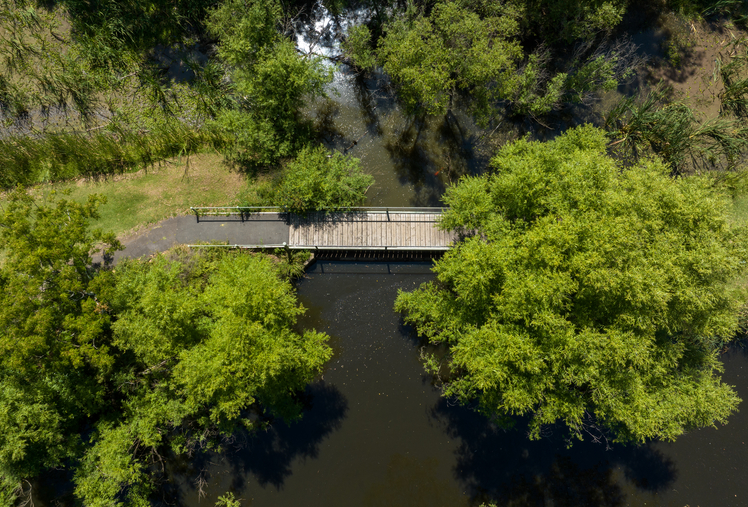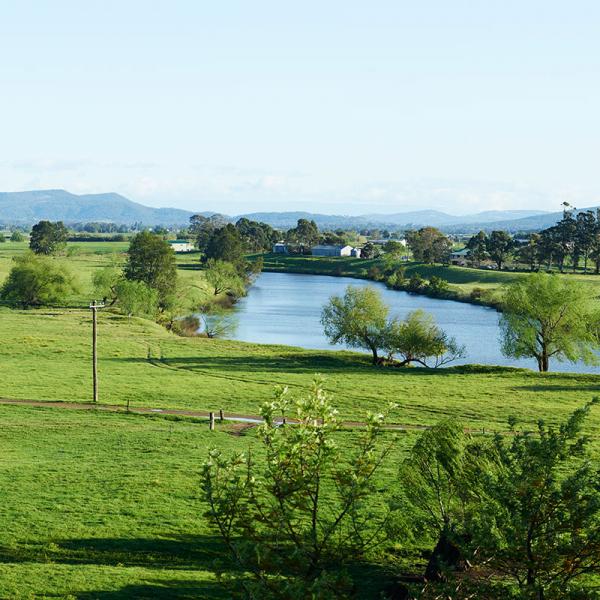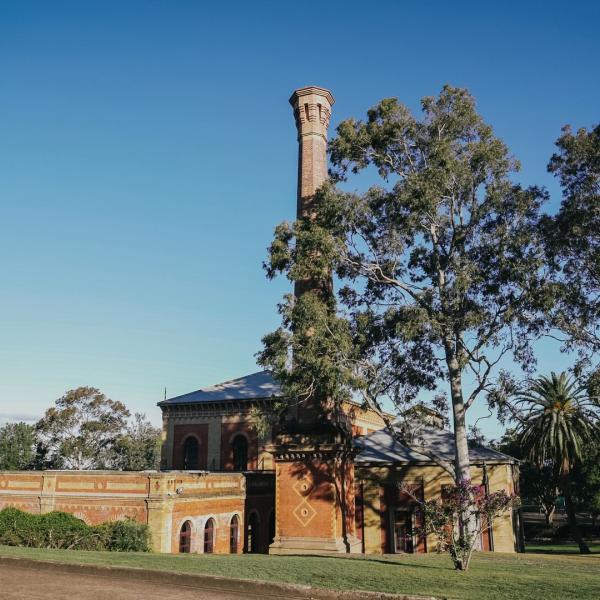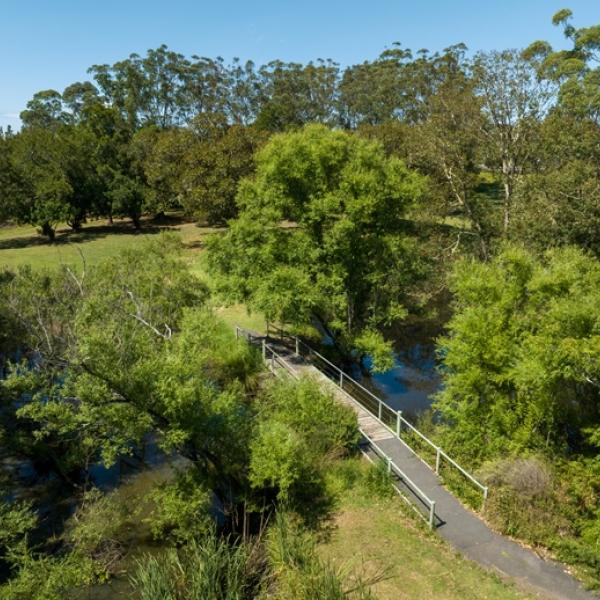Maitland’s waterways
Maitland’s wetlands and waterways are essential for wildlife and provide scenic spots for recreation, like walking and birdwatching. Despite impacts from urbanisation, community efforts have helped restore these areas. Our Estuary Management Plan supports this by improving water quality, managing erosion, and restoring habitats, ensuring these spaces remain vibrant for both nature and community enjoyment.
Strategic targets we are meeting
Creating biodiversity corridors
This is helping us achieve Goal 1.1 of our Green & Blue Maitland target.
Protect important natural spaces
This is helping us achieve Goal 1.2 of our Green & Blue Maitland target.
Improve waterway health
This is helping us achieve Goal 1.3 of our Green & Blue Maitland target.
Improving our waterways
Blue green algae management
Blue green algae can bloom in our rivers and waterways, and it needs to be avoided as it produces toxins that are harmful to your health, animals and livestock.
We undertake monthly monitoring of blue green algae at Walka Water Works, Telarah Lagoon and Rathluba Lagoon.
Blooms can be recognised as a discolouration of the water, by scum on the water surface or a paint like slick, or by an earthy or musty odour coming from the water.
Should you notice considerable blue green algae blooms that are of concern, please contact our Environment team on 02 4934 9700.
Algae Alert Levels for Recreational Users
- Green Level: Water is safe for recreation, but routine monitoring is in place to ensure conditions remain good.
- Amber Level: Algae levels are higher than normal, and extra testing is being done. Caution is advised; avoid contact with water if it looks discolored or has an unusual smell.
- Red Level: Water is unsafe for any recreational use, including swimming, fishing, and boating. Avoid all contact with the water to protect your health.
Current levels
Using our wetlands and waterways
Discover the beauty and tranquility of our local wetlands and waterways. Enjoy activities like walking, birdwatching, and connecting with nature while supporting conservation efforts.
Keeping our waterways clean
The community plays a crucial role in protecting our waterways from pollution and algae blooms.
Help keep our waterways clean by following these simple steps:
- Proper Disposal: Rake up garden clippings and dispose of them correctly.
- Sweep Paths: Use a broom instead of hosing to reduce runoff.
- Manage Chemicals: Prevent fertilizers, chemicals, and waste from entering stormwater drains.
- Wash Wisely: Clean your car on the lawn to avoid runoff.
- Clean Up: Pick up after pets and avoid flushing harmful substances.
Recycle and compost to minimise waste and enrich your soil.
Be aware that water quality can change with weather, so avoid swimming in estuaries or rivers for three days after heavy rain.
Your efforts make a big difference in keeping our waterways clean and healthy!
Follow our progress
Maitland's water quality dashboard
Our dashboard provides up-to-date data on water quality, helping you understand conditions for recreation and ecosystem health.




